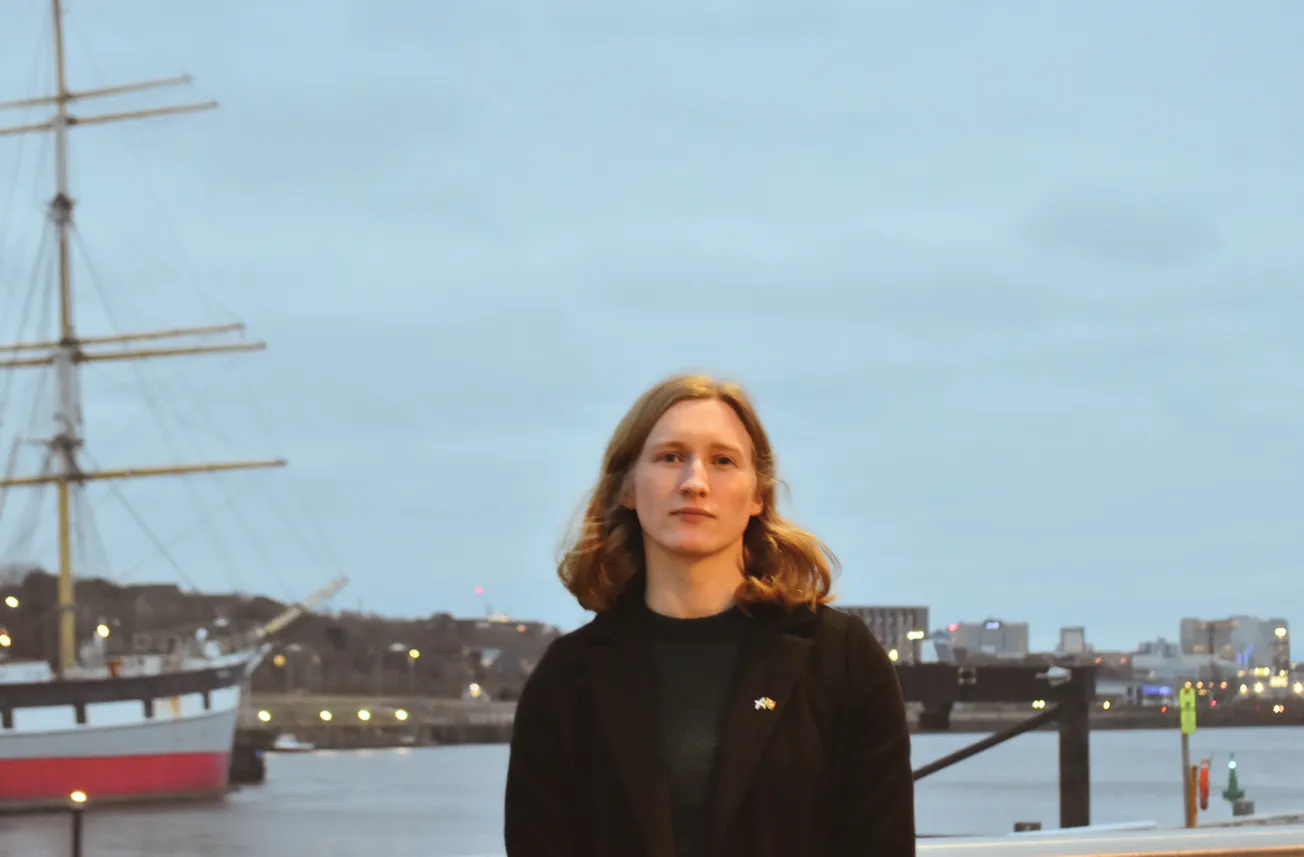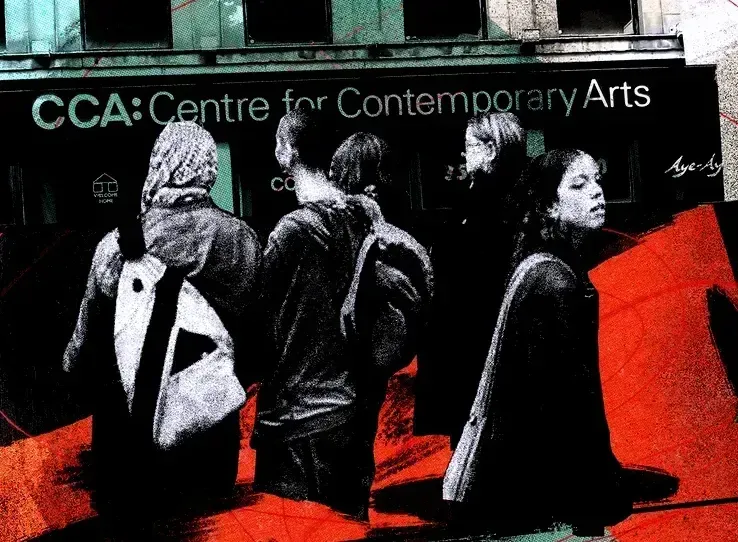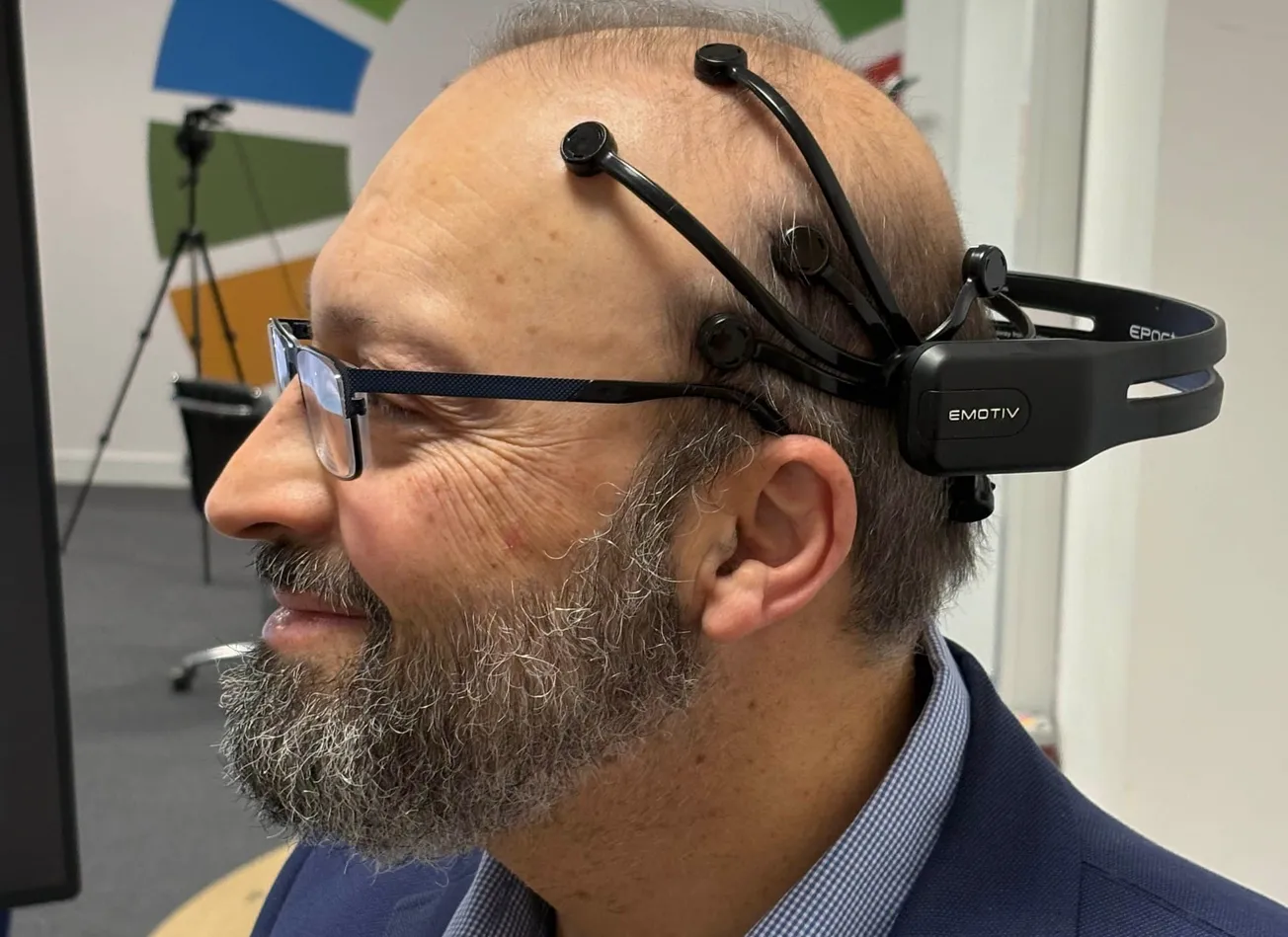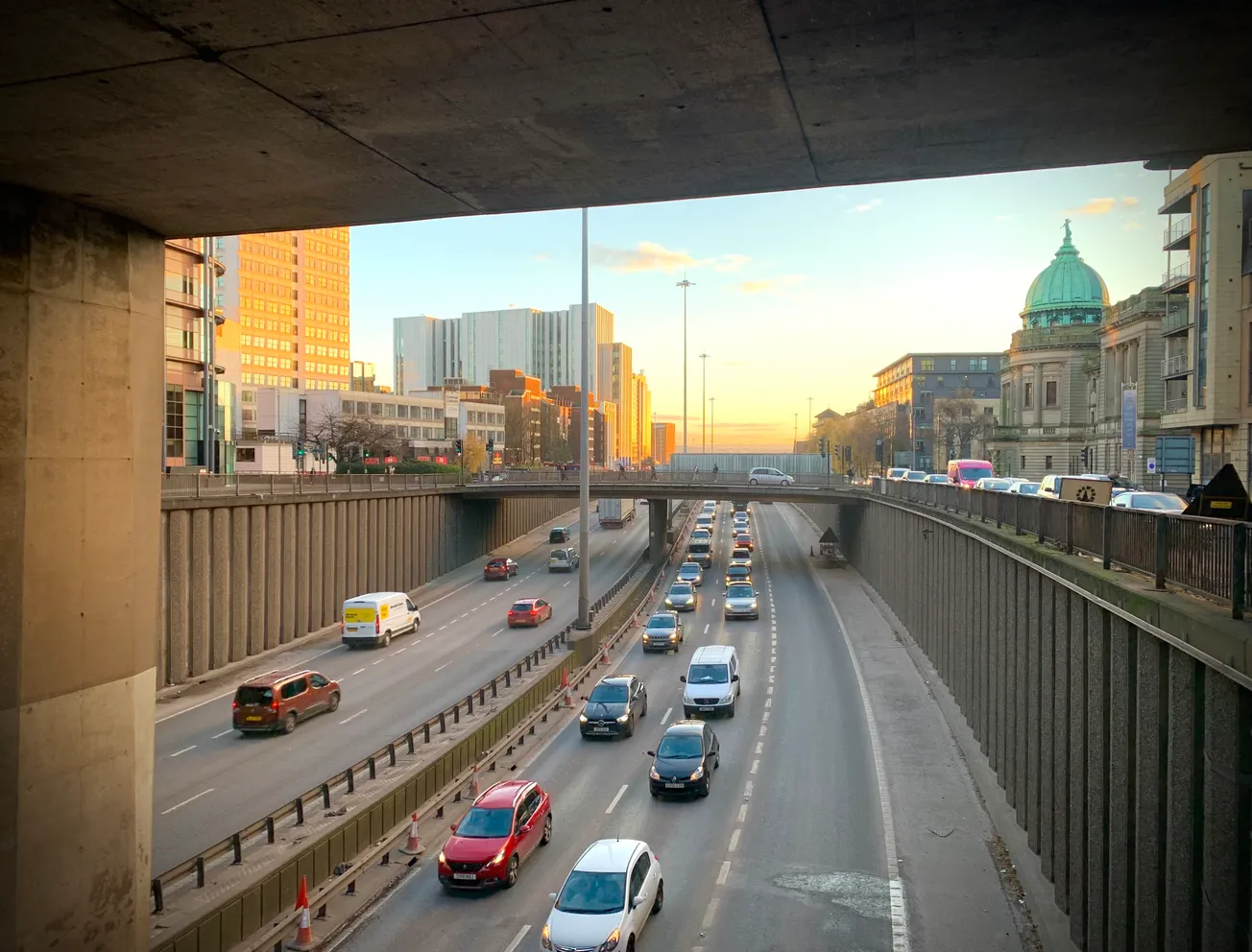Ellie Gomersall and I are chatting in the café of a Southside climbing centre; when we’re done she’s off to scale the walls. It is, she says, a hobby that is both terrifying and addictive. It’s also not something that — having suffered from Sever’s disease during her teenage years —she ever thought she’d be able to do.
“Sever’s disease is basically like the most extreme growing pains,” she says, explaining that it manifests by the muscle and bones growing at different rates and grating against each other. As a result she never got into sports, but last year wanted to challenge herself by learning to swim. “I managed to do that,” she says, “and thought, ‘great, I’ve ticked that off, now what can I do?’. That’s when I decided to start climbing.”
This is the same kind of determination that is driving Gomersall’s political ambitions. She first rose to prominence as NUS Scotland president in the post-pandemic years, but has since become one of the highest-profile members of the Scottish Greens. It has not always been plain sailing. Having become the party’s co-chair at the age of 22, she left before her term was up because, she tells me, her wellbeing was suffering from continual “interpersonal squabbles” within the team. Dealing with that was “unsustainable”, she says. It was “very much not in the remit of the role” she had signed up for.
Not much has changed in the 18 months since she stood down, something she holds the party’s leadership responsible for. “Solutions absolutely need to come from the top,” she says, seemingly unaware — or unconcerned — of how loud her voice is in the near-empty room. “I don't necessarily think we’ve seen that.”
So now, with veteran co-leader Patrick Harvie preparing to vacate that role while planning to stay on as an MSP, Gomersall, at the tender age of 25, is gunning for his parliamentary seat. She, party activist Iris Duane and Glasgow City Councillor, Seonad Hoy are vying to collectively top the party’s Glasgow regional list in a move local members will vote on next month. If successful, it would be an upset of David and Goliath proportions. Gomersall would usurp Harvie from his long-held position at the top of the list — which elects regional representatives to Holyrood on a proportional basis — with Duane in second place and Hoy at number three. With the Greens currently polling well, the plan would guarantee at least one of them a seat in Holyrood; with the system unlikely to see more than three Greens returned it would almost certainly put Harvie out of a job.
It is not something Gomersall is squeamish about. For one thing, the party has done away with strict gender-balancing rules that meant men and women had to be alternated on the list, clearing the way for the trio — “three proudly socialist women”, two of whom are transgender — to try to shake things up. But challenges are, Gomersall says, “part of the democratic process” and a “healthy thing to do”. “It’s an important grassroots principle and that's exactly why I'm standing on this slate,” she says.
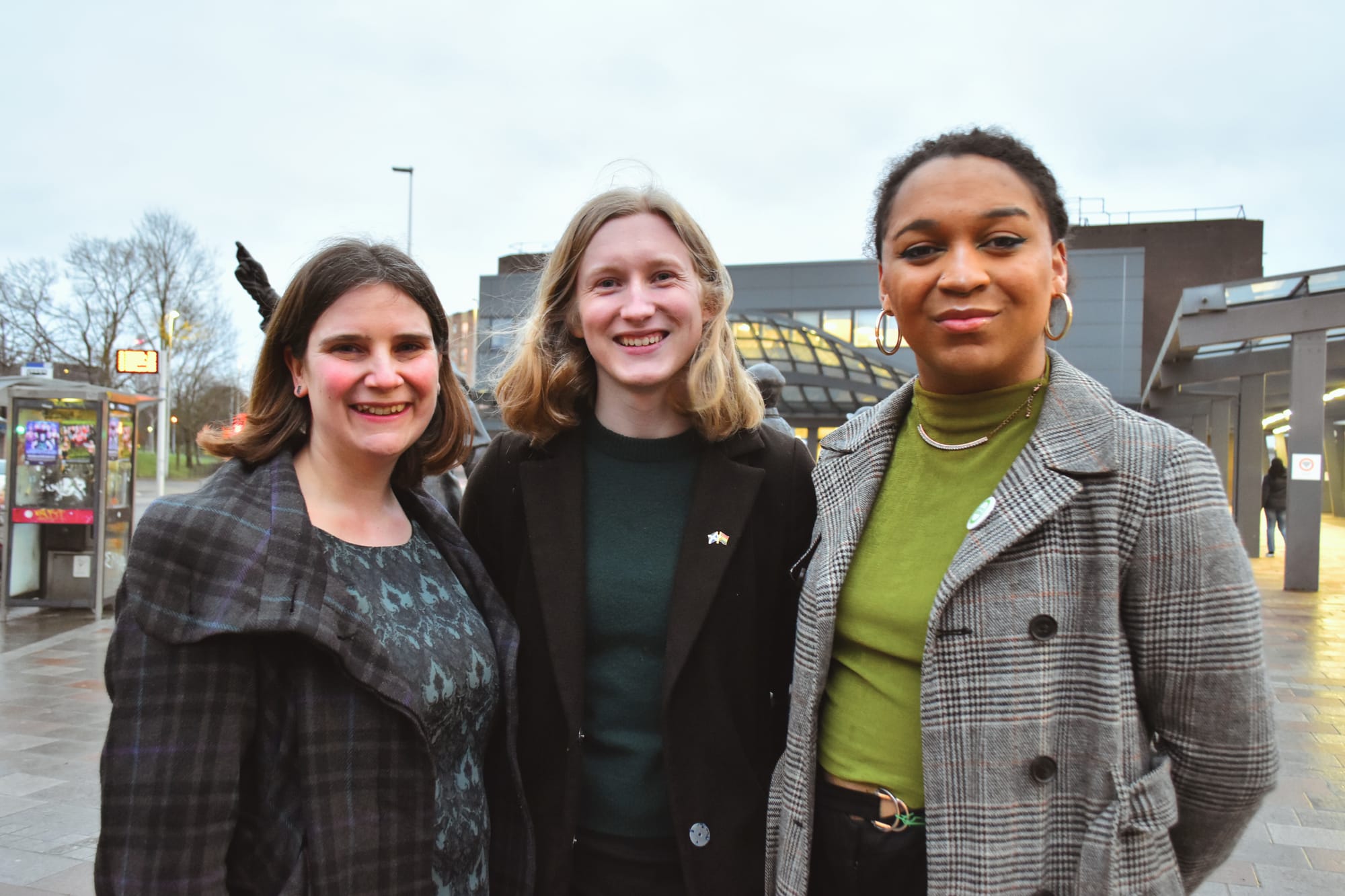
Politics was never part of Gomersall’s game plan. Her grandfather had been a Labour councillor, but no one else in the family — neither her teaching assistant mother nor aerospace-industry administrator father — was particularly political. When she moved to Glasgow from Cheltenham it was to study physics, with the ultimate goal being to become a high-school teacher. But, having joined first a trade union and then Jeremy Corbyn’s Labour Party after taking on a part-time supermarket job, student politics beckoned. She had come out as trans at the same time as making the move north and, after getting involved with the LGBT society at the University of the West of Scotland, was convinced to make the switch to the Greens.
“All of a sudden I was living in Scotland, not England; all of sudden I’d transitioned my gender; all of a sudden I was living independently and was now an adult,” she says of the upheaval. Many of the friends she made were already in the Greens and could “articulate the changes they wanted to see in the world”. Soon after Gomersall realised that “I could go through almost any Greens policy and be like ‘I really agree with that’”.
During the pandemic she both quit university — “I came to the realisation towards the end of my third year that actually it wasn’t right for me” — and became much more active in the party. A move from Paisley to Govanhill coincided with her becoming convener of the Southside Central ward, a grassroots role that’s almost always performed by a student, regardless of party.
Enjoying this edition? You can get two totally free editions of The Bell every week by signing up to our regular mailing list. Just click the button below. No cost. Just old school local journalism.
Such activists are always extremely young and motivated; Gomersall stood out even among them with her willingness to pound pavements and knock on doors even when people didn’t want to hear from her. It’s clearly an endeavour she enjoys — when discussing her experiences on Glasgow’s streets, her enthusiasm is palpable, despite her measured demeanour.
Although she stood as a paper candidate in the 2021 Holyrood election — “I was number 11 on the list and it would have needed several miracles to get me elected” — she campaigned for Elaine Gallagher in the 2022 local vote. Gallagher won, making her the first trans woman to take a seat on Glasgow City Council.
The issues she heard during those campaigns — potholes, litter, bins — continue to preoccupy the electorate now, Gomersall says. And while it is up to the local, not national, government to fix them, she believes it is the job of MSPs to enable, not hamper, councils to do that. Voters may be concerned about the state of the public services they use, but “the real issue is that Glasgow City Council has been consistently underfunded by Holyrood”. “These issues actually connect,” she says.
Of course the Greens, before, during and after entering government via the Bute House Agreement (BHA) with the SNP, have actively participated in ushering cost-slashing Holyrood budgets through. Prior to signing the BHA, which gifted ministerial positions to Harvie and fellow co-leader Lorna Slater, the Greens pushed the nationalists for concessions but did not ultimately act as a block. But, even after the parties fell out and the power-sharing arrangement disintegrated, the Greens continued to give the larger party their support.
It has not, Gomersall concedes, been a good look.
“It saddens me that in recent years, partly as a result of the Bute House Agreement, Greens have voted through budgets which have cut funding to those vital services,” she says evenly, sipping on a can of Fanta.
I point out that several policies put forward by the Greens while the SNP’s partner in government — the Deposit Return Scheme and Highly Protected Marine Areas among them — have also had to be dropped after proving unworkable, but Gomersall, equally calmly, contends the party made “some really significant wins”. She mentions its work on the Housing Bill as an example, although Green-inspired protections around rent controls have been watered down since being introduced last year.
Still, she feels the Greens have been changed by their taste of establishment politics and no longer represent the “constructive left in opposition in the Scottish Parliament”. It’s something she, Duane and Hoy are looking to rectify, with all three making “an absolute commitment” not to back any budget that would cut funding to local authorities should they enter Holyrood next year.
Whether it would make a difference to parliamentary outcomes is moot, with Gomersall acknowledging that, given the number of MSPs the party is likely to return, “we're limited in terms of what we can do as Greens”. But, with voters “living the impacts of public-sector cuts every single day”, she wants the people of Glasgow to look to the Greens to help.
“People are starting to turn to the likes of Reform and Nigel Farage because they think ‘I've tried the SNP, I've tried Labour, I've tried the Tories; they've all been in government and not a single one of them has changed anything so now I'm going to try Reform’,” she says. “That's where they're going when the reality is that it's the Greens who actually have the solutions to these issues.”
But that message is clearly not cutting through in parts of Glasgow, as Gomersall found to her cost when she stood in the Maryhill by-election last year (her candidacy, she says, was last-minute — the contest was sparked by the surprise departure of the local Labour rep for London). She did better on vote share than she did in Cardonald, taking 12% of the ballots cast, but was pushed into fourth place by Reform. The Greens’ involvement in the BHA has tarnished its image, she believes, though optimistically contends that the party’s overall position after being part of government is “neutral”. The Greens have, she ventures, probably gained as much support as they lost.
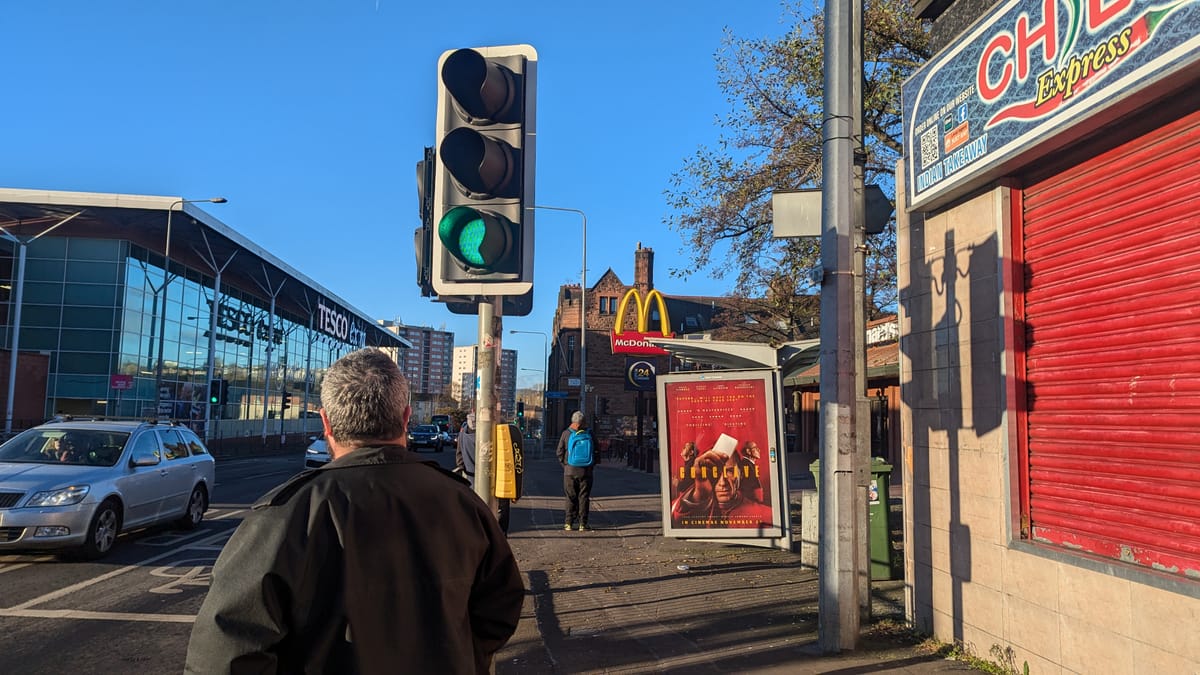
Life in politics can be bruising, something Gomersall is already aware of from her time at the NUS. The social media abuse she received then was, she says, “horrendous”, with death threats so commonplace she was in regular contact with the police. Security training and a reinforced front door are, she says, now par for the course. Holyrood is a completely different ball game to student politics, though, and Gomersall says she is “well aware” that if she gets elected, “not least as an openly trans MSP”, it’s going to be “absolutely brutal”. It is not something she is prepared to shy away from.
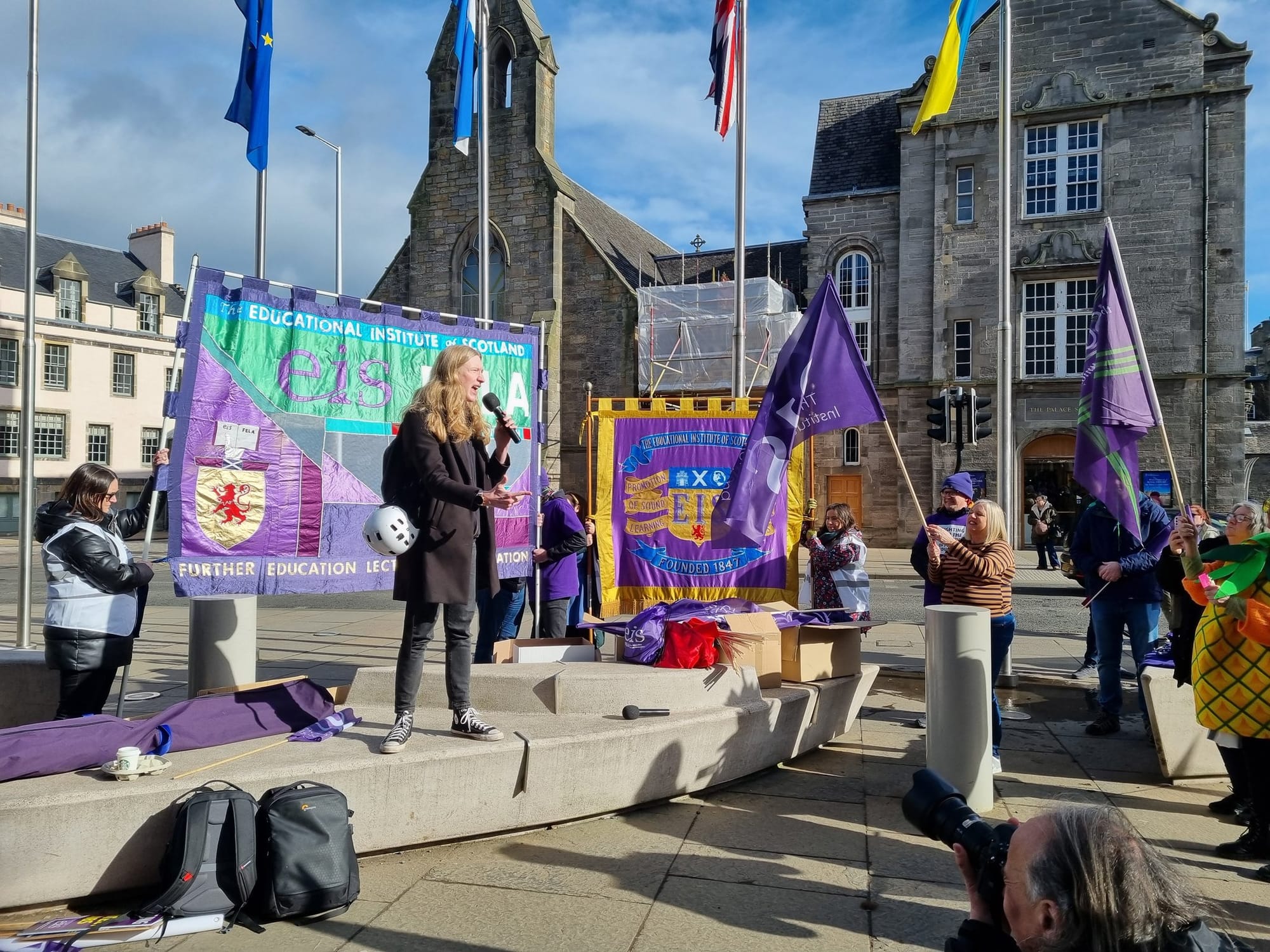
“The fact is I'm tired of there not being anyone who looks like me in parliament,” she says. She wants to represent everyone in Glasgow — “particularly all the working-class people whose lives have been made massively worse by successive governments” — and doesn’t want to be seen as “the MSP for trans people”. Still, getting elected would be “really significant in my community” she says.
“I can’t pretend I will have a mandate to represent the views of trans people, not least because we're not a homogenous group, but I can’t pretend that being trans would have nothing to do with it because that would be disingenuous.”
The climbing centre has begun to fill up during the hour that we’ve spoken and Gomersall is keen to join her fellow enthusiasts on the walls. I’ve been here before, to meet a Green politician Gomersall is friends with. The pair are supposed to be climbing together today, but a last-minute cancellation means she is going solo. Mild-mannered, likeable, yet unafraid to rock the boat, Gomersall clearly has supporters within the party; her list-topping plan might just come off.
If it does, repairing the Greens’ damaged image among the wider electorate will be a far bigger challenge. As she walks off, helmet in hand, she certainly doesn’t appear to be daunted.

